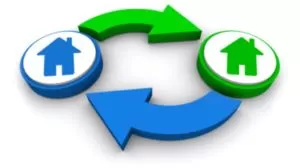Could a 1031 Exchange Work for You?
Posted on May 16, 2018 by Laura Lucky
If you own investment property and are planning to sell and purchase something different, you’ll want to consider if a 1031 Exchange might be your best strategy for maximum monetary benefit.
The IRC Section 1031 tax code allows for an investor to sell a property and then reinvest the proceeds into a new property or properties, and to defer all of the capital gains taxes. This gives you the ability to keep all of the property’s equity for re-investment which can be a powerful strategy to facilitate significant portfolio growth and offer an increased return on your investment.
A 1031 Exchange must be properly structured for it to be valid. There are some rules of the transaction that must be followed, and an accurate understanding of the process is important. We will refer you to a required qualified intermediary (QI) who serves as a 1031 Exchange facilitator and will advise and guide you through the specific selling and buying process.
For a property to qualify, it must have been held for productive use in trade, business or investment. Likewise, the property you’ll be exchanging it for must be considered “like-kind.” Some people confuse this concept and think that they must exchange properties that have the same use. That’s not the case. It simply means you can exchange real property held for investment with any other real property held for investment. So, for instance, you could exchange raw land for a commercial site, an office building for apartments, or single-family rentals for retail.
What is not allowed in an exchange is property held for personal use, or property held primarily for sale such as developed lots or fix-and-flips. Second homes and vacation homes might qualify if they meet the requirements; such as you’ve personally used the property for 14 days or less of every calendar year that you’ve owned it.
When you are exchanging, you must exchange into property of equal or higher value. However, you may exchange one property for several, or vice versa. You can exchange property from other states. So, if you own an office complex in Minnesota for instance, you can exchange it for income-producing rental properties in Arizona.
Exchanges must meet a predetermined timeline as well. You must identify which property or properties you’ll be buying within 45 days from the close of escrow on the property you’re selling, and you must close on the new property or properties within 180 days.
We’ve helped many clients sell and buy while using the 1031 Exchange to their advantage. Call or email us and we’ll put you in touch with an exchange facilitator who can answer your questions and help you determine whether it’s a good option for you as well.
602.320.8415 or Lucky@RussLyon.com


